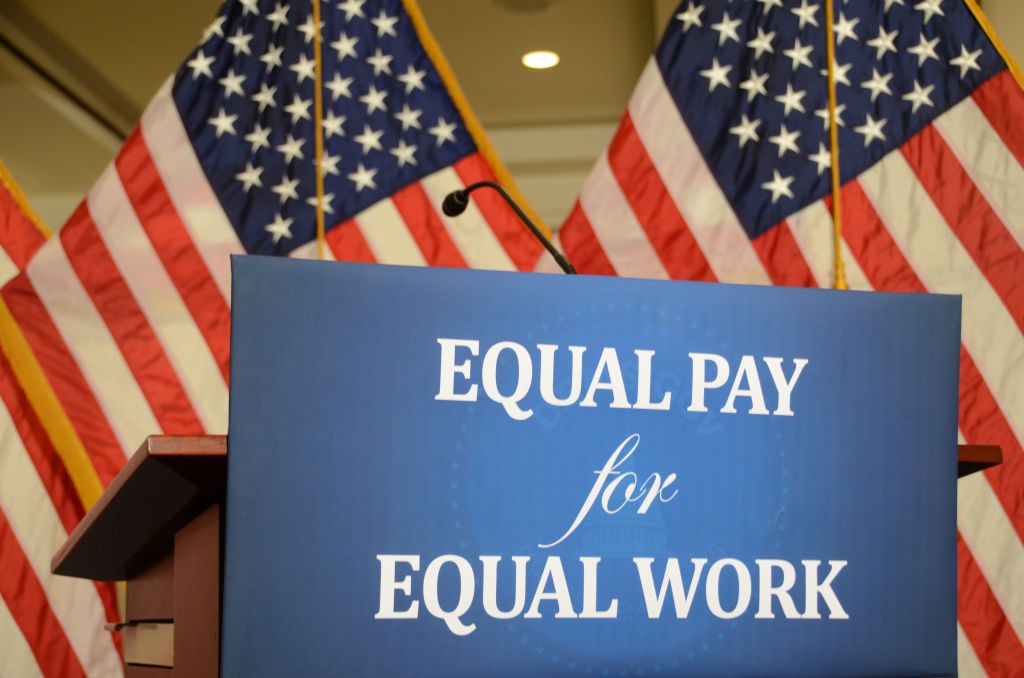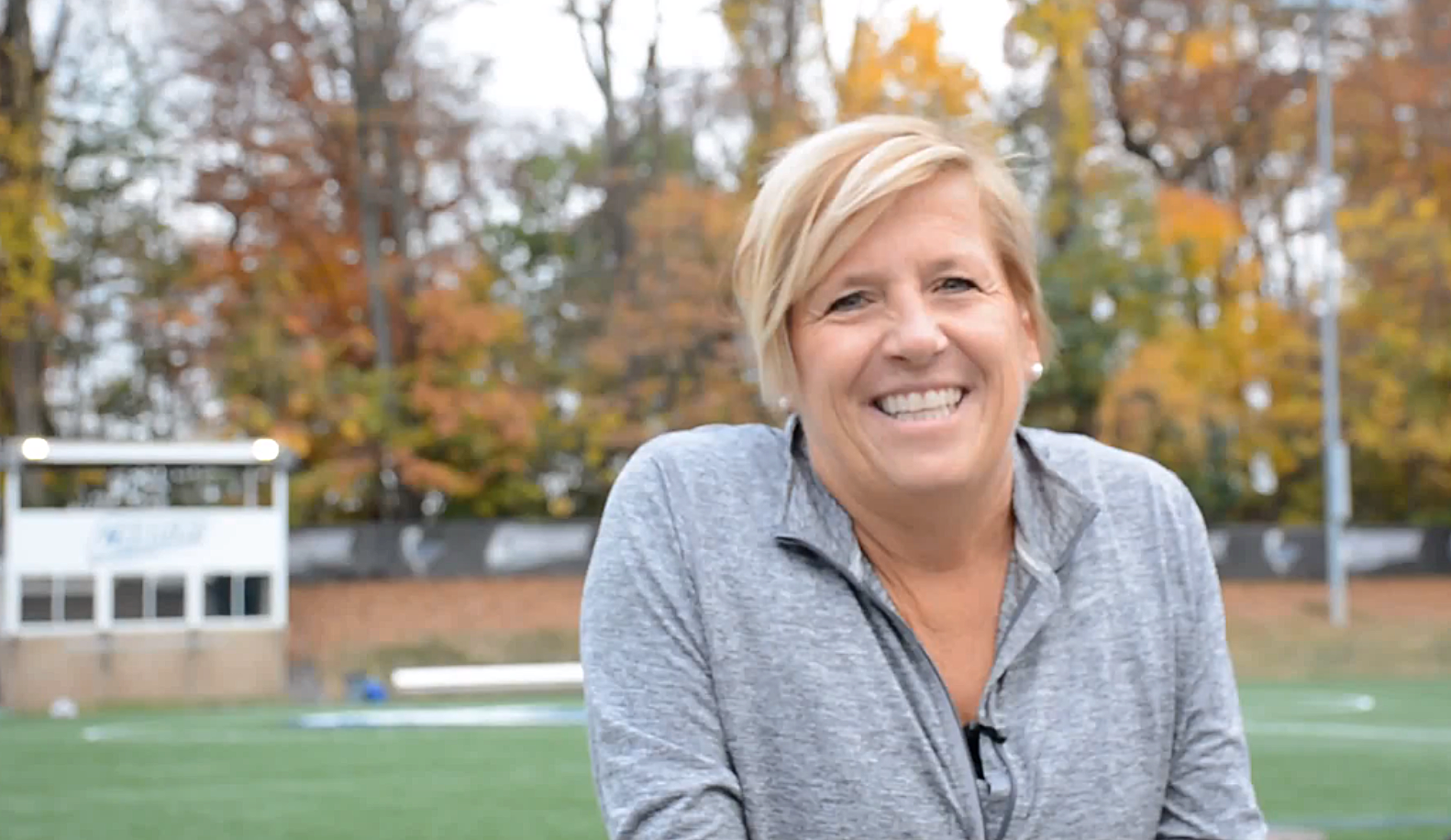Everyday is payday? Not so much for women.
American Association of University Women (AAUW) defines Equal Pay Day as the symbolic day when women’s earnings “catch up” to men’s earnings from the previous year.
This year, this so called “holiday” was celebrated on April 12th.
Why is a “catch up day” needed for women? In the year 2016, shouldn’t women already be “caught up” to men?
Well, not exactly.
According to AAUW and the U.S. Bureau of Labor Statistics, women still face a wage gap in nearly every occupation.
According to household data from 2015, the BLS found that there were 21,807,000 men employed in management, professional and other related occupations. Of these 21,807,000 their median weekly earnings was $1,383.
23,038,000 women were employed in the same management, professional and related occupations. However, their median weekly earnings totaled up to $996.
Women and men, essentially doing the same job. Yet, men’s paychecks showed they were making 38 percent more than the women.

Dr. Erin McLaughlin is the chair of the business department here at Cabrini. McLaughlin feels very passionate about women’s rights and the injustices that women are still facing in this country.
“Equal Pay Day symbolizes the entire idea of the injustice associated with the gender wage gap,” McLaughlin said. “Basically a man works a full year and earns the full salary, while a woman in that same position will have to work an extra 3 months to make the same amount that the man earned.”
Recognizing that in the United States, 79 percent of a dollar is what a woman is paid in comparison to a man, McLaughlin believes this issue is born out of tradition and stereotype.
“It is expected that women are going to take on certain roles,” McLaughlin said. “It is expected that women are going to take on more of a family role and it is expected that women are going to take on the child care role.”
McLaughlin believes that females are influenced at a very young age about what women can and cannot do in the workplace.
“The moment a child is born they are told what is a male field and what is a female field,” McLaughlin said. “They are told that a woman can not do the job the same as a man can do the job.”
For years now, gender stereotypes have been a problem in the workplace. Unfortunately, some Americans don’t see the issue getting better anytime soon.
A survey conducted by Pew Research Center in 2014 found that despite the major advances women have made in the workplace, the public is still divided about whether the imbalance in corporate America will change in the future.
About half (53 percent) believe men will continue to hold more top executive positions in business in the future, whereas just 44 percent say it is only a matter of time before as many women are in top executive positions as men.
“There is still a belief in place that men need to be the leaders,” McLaughlin said. “People think women are too emotional and that women can’t be the leaders, so somehow they don’t deserve the same pay.”
Women in athletics see it too.
Carli Lloyd is an American soccer player, two-time Olympic gold medalist and a World Cup Champion.
Now, she is also fighting for equal pay for female athletes.
Lloyd wrote an article for the New York Times earlier this month titled “Why I’m Fighting for Equal Pay.”
In the article, Lloyd discusses the discriminations and issues female athletes continue to face when it comes to equal pay.
“Each year, the United States men’s and women’s national teams each play a minimum of 20 friendly matches. The top five players on the men’s team make an average of $406,000 each year from these games. The top five women are guaranteed only $72,000 each year,” Lloyd wrote.
Additionally, Lloyd says that if she were a male soccer player who won a World Cup for the United States, her bonus would be $390,000. However, as a female soccer player, the bonus she got for her team’s World Cup victory last summer was $75,000.

At the Division III level, athletes here at Cabrini and across the nation are not paid for their efforts on the field. However, that does not mean that equality between male and female sports is any less important.
“In my opinion, Division III athletics does a better job in making sure that quality athletic programs are given to both genders,” Kate Corcoran said. “Gender inequality may be more prevalent at the Division I level because a lot of the athletic programs are surrounded by football, which tends to get more than other programs and it can be hard to offset that.”
Corcoran returned to the Cabrini College athletic department this spring as the associate director of athletics.
Corcoran was the facility director of the Dixon Center and assistant women’s basketball coach here at Cabrini before spending the last nearly six years at Rosemont College. At Rosemont, Corcoran served as the Assistant Director of Athletics and Senior Women’s Administrator (SWA).
SWA is an administrative title that was developed in the late 1990s. The NCAA defines the role as the highest ranking female in each NCAA athletic department or member conference.
“The SWA is looking at what the men sports get and making sure that the female sports get those same opportunities and improvements within their athletic program,” Corcoran said. “It is a position to fight exactly what we are looking at, which is injustices in athletic programs and making sure that women are treated equally.”
Jackie Neary is the head field hockey and women’s lacrosse coach at Cabrini, as well as the athletic department’s student-athlete wellness coordinator.

“SWA came around because years ago in athletics it was very top heavy with males in administrative positions,” Neary said. “It was great that the NCAA saw that there needed to be females in there for interesting and different perspectives. I believe you need those different perspectives in order to be successful.”
Neary emphasizes the changes that Title IX brought about to athletics and how gender roles changed after it was put in place.
According to the U.S. Department of Education, Title IX states that no person in the United States shall, on the basis of sex, be excluded from participation in, be denied the benefits of, or be subjected to discrimination under any education program or activity receiving Federal financial assistance.
“When Title IX came about, salaries got bigger,” Neary said. “It was great but bigger salaries meant that more men started entering athletics, whereas prior to Title IX, coaching especially was a very female dominated career field.”
Looking a bit closer at the wage gap, Corcoran believes it is still an issue in this country because women have a fear of negotiating salary.
“There is a pre-conceived notion that men will go in and negotiate salary,” Corcoran said, “Whereas women will get offered a job and assume that is is okay to accept the salary that is given to them just because they think their hard work and what they bring to the table will be recognized before they have to ask for anything.”
Corcoran believes the U.S. has been at a stand still for a while when it comes to equal pay for women.
“When Title IX came out in 1972, everything sort of plateaued,” Corcoran said. “There was a rise in female elevation in coaching, education and administration and then it hit a level in the 1980s where it stagnated and it really has not gone away from that.”
“Until you see more opportunities for women or more women fighting to get gender equality in pay and position, then it’s going to stay stagnant,” Corcoran said. “I’m interested to see how it plays out over the years.”
What about college students?
As current juniors and seniors in college prepare to go out into the workforce, they may ask themselves “What am I getting myself into?”
For females especially, it can be difficult going into certain career fields knowing there is going to be discrimination, inequality and unfair pay.
Natalie Trerotola is a junior elementary and special education major. Trerotola realizes that teaching, more so than any other career field, faces gender stereotypes.
However, this has not stopped her from following the dream she has had since she was in the third grade.
The New York Times found in 2014 that across the country, teaching is considered an overwhelmingly female profession, and has become more so over time.
The article, titled “Why don’t more men go into teaching?” stated that more than three-quarters of all teachers in kindergarten through high school are women. Additionally, in elementary and middle schools, more than 80 percent of teachers are women.
In response to the stereotype that teaching is a “female job,” Trerotola disagrees.
“It may seem that more women than men take on teaching jobs, but that does not mean it is a ‘female’ job,” Trerotola said.”There is no required gender to be able to teach and influence a child for the greater good.”
Senior elementary and special education major Molly McDougall, feels similarly to Trerotola.
“I never once felt forced to pursue a career in education because I am a woman,” McDougall said. “I hope that one day society will no longer look at gender as a prerequisite for pursuing specific career paths.”
Despite being a more female-dominated career, the BLS data from 2015 found that male elementary and middle school teachers still had higher earnings than females.
The 543,000 male elementary and middle school teachers had median weekly earnings of $1,077 in 2015, whereas, the 2,262,000 female teachers had weekly earnings of $957.
Recognizing that there are unfair discriminations when it comes to pay, McDougall says that her focus in the classroom will be on her students, not on her paychecks.
“Do I think teachers should be paid more? Sure, but it’s not one of my main concerns,” McDougall said. “I’m concerned about my students being successful and reaching their fullest potential.”

As female college graduates enter the labor force, will they see their pay become equal to men’s or will they still have to work three or four months extra to make what men make?
Women like Carli Lloyd know that the fight for equal pay is not going to be an easy one. However, it will be worth it.
“If I’ve learned anything in my career, it’s that nothing worthwhile in life comes easy,” Lloyd wrote. “That’s just the way it is. This isn’t about a money grab. It’s about doing the right thing, the fair thing. It’s about treating people the way they deserve to be treated, no matter their gender.”


